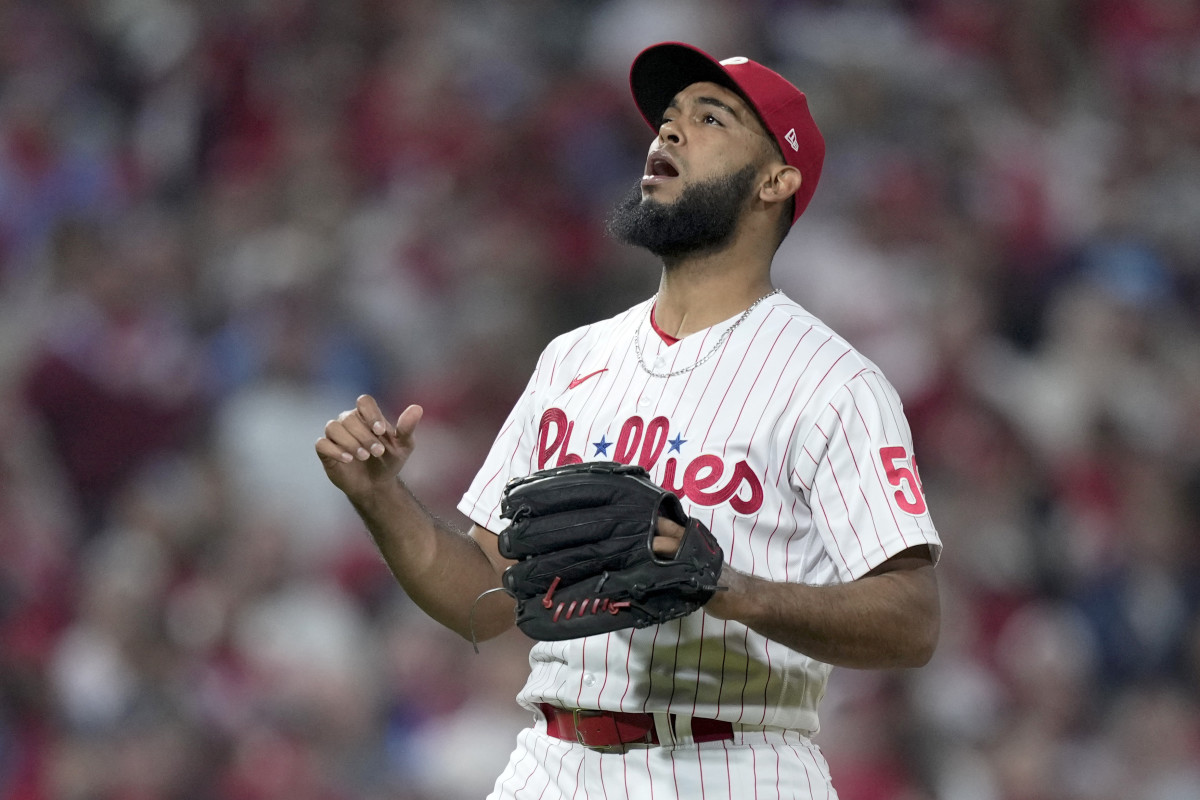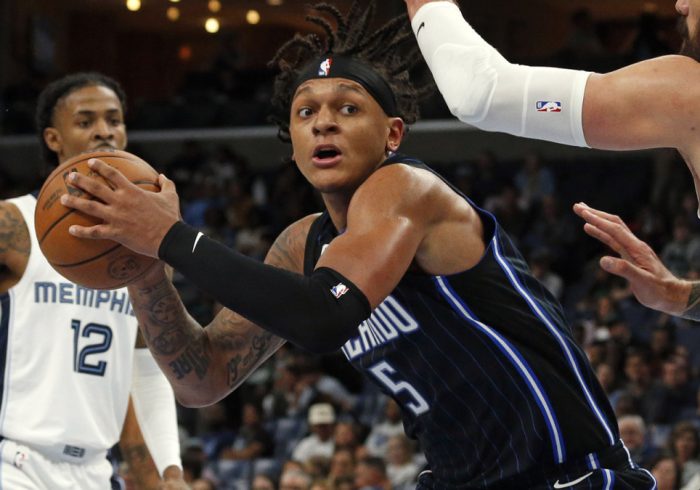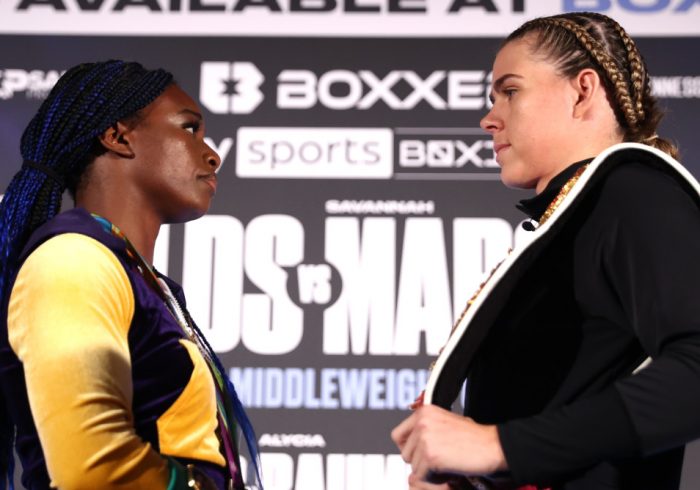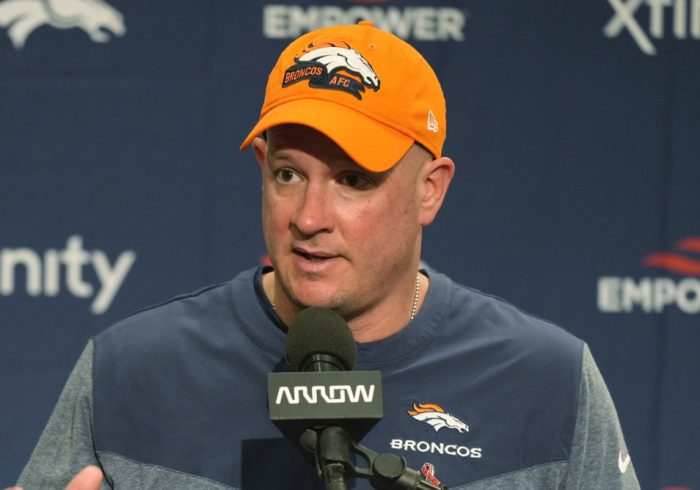PHILADELPHIA – He grew up on Lyndoch Street in Corunna, a slice of Ontario so blue collar that it is known as Chemical Valley, not exactly a real estate agent’s siren song to sell homes. His father worked in a factory that manufactured what are known as carbon blacks, the material used in tires and other products. After 37 years of quietly working his own factory hours in baseball, mostly under the cloak of anonymity, Rob Thomson earned his first major league managing job with the Phillies this summer.
Today, even the most casual baseball fan should know the name Rob Thomson. That’s because still every bit the pride of Chemical Valley, and still working the ridiculous hours that would shame the most diligent of factory workers, Thomson was the star of National League Championship Series Game 3 Friday at Citizens Bank Park.
Holding a 3–2 lead after five innings, Thomson grabbed this game like a falcon with prey in its talons. He would not let go. He pulled his effective starter, Ranger Suárez, after just 68 pitches. To preserve the lead, he decided nobody else was going to touch the baseball but his three best bullpen arms, Zach Eflin, José Alvarado and Seranthony Domínguez. He did so without worry of the next day or the potential of playing five games in five days.
“Yeah, that’s exactly what I said when I took Ranger out,” Thomson said. “Although when Serathony got that last out, that was going to be his last batter. I wasn’t going to have him throw 40 pitches.”
It worked perfectly. Philadelphia won, 4–2. The rookie manager—and it’s odd to be calling a 59-year-old baseball lifer a rookie—showed exactly how you run a postseason game: you seize the opportunity to win with the throttle wide open.
“Not surprised,” first baseman Rhys Hoskins said. “As players, we have seen it for a while. Whenever he has an opportunity to go for the kill, he goes for it. Every time. You sense that as a player.”
If he didn’t know the exact numbers, Thomson knew winning Game 3 gives him a massive chance of winning the series—69%. That’s the conversion rate of teams winning the series after winning Game 3 after a split of the first two games.
The swing game played out exactly as Thomson wanted it. He had the right pitchers lined up at the right time, each move making perfect sense for those who know his style. These were the three moves that he used to check-mate San Diego:
1. He pulled Suárez because right-handed hitters Manny Machado and Brandon Drury were leading off the sixth for San Diego. Suárez is a No. 3 starter, a lefty who is 54⅓ innings beyond his career high and who was pitching for the first time in 10 days. You don’t “hope” he can give you one more inning, not when the hitters due up are Machado, who slugs .667 when he sees a pitcher a third time, and Drury, who slugged .626 against lefties, the third best in MLB. The “pocket” of the lineup was perfect for Eflin, a righthander.
2. Alvarado started the seventh against the bottom of the Padres lineup, but when Thomson brought him in, Thomson knew Alvarado was staying in long enough to face Juan Soto five batters away. Thomson decided before the series he wants Alvarado on Soto in every high leverage at bat he can.
3. Once Soto sliced an opposite field single off Alvarado to start the eighth, Thomson summoned Domínguez. No surprise. To repeat what’s been said here before, this series pivots on the Soto-Machado at bats. Thomson knows this. He knows the best matchups for those spots: Alvarado and Domínguez, each of whom throws 100 mph.
“I knew the inning before I was facing Machado,” Domínguez said.
Domínguez carried the game to the finish—barely. He struck out Austin Nola for the final out on his 34th pitch, two short of his season high. The three Philadelphia relievers threw four innings of shutout ball.
The Phillies allowed no walks and no extra-base hits for only the second time in their postseason history. The only other such game was 2009 NLCS Game 3, an 11–0 win with eight innings from Cliff Lee.
“I wasn’t surprised at how he ran the game,” says Phillies hitting coach Kevin Long, who has known Thomson since 2004, when they worked for George Steinbrenner’s Yankees. “He is as prepared as anybody I have ever seen. Ever. I know this: you can’t outwork him.
“He’s probably going to come in [Saturday] at 10 in the morning [for a 7:30 p.m. game]. He will be here until 2 a.m. going over the game.
“In spring training, he gets in at 3 a.m. Yes, three. You cannot beat him to the ballpark. I know that. I’ve never beaten him in. Nobody ever has. And he’s got a great baseball mind and he’s a great communicator. He’s a lot like Joe Torre in that way.”
When I ask Thomson who influenced him in running a game so aggressively, he says, “Joe Torre, Joe Girardi, Gabe Kapler, Mark Newman, who ran the Yankees minor league system … We would go over games all the time. It’s just all the years and all the people. You take what you can in this game. That’s how it is in this sport.”
A former catcher and third baseman, Thomson fell in love with baseball while coached by his father, Jack. When Rob was about nine years old, Jack took his son to Tiger Stadium, 75 miles away from Corunna. After the game, Jack brought Rob to a spot in view of the players’ parking lot. They saw Tigers such as Bill Freehan and Al Kaline walking to their cars in finely tailored suits.
“You see, son,” Jack said, “that is how big leaguers dress.”
A catcher and third baseman, Rob played at St. Clair Community College in Port Huron under Dick Groch (who later as Yankees scout signed Derek Jeter) and at Kansas before the Tigers drafted him in the 32nd round in 1985. He hit .228 over four minor league seasons, never higher than Class A, then became a minor league coach in the Tigers system in ‘88.
He spent 28 years with the Yankees, earning five World Series rings, before joining the Phillies as bench coach in 2017. It was during his run with the Yankees that Thomson earned his nickname from Torre: “Topper,” because Torre saw that Thomson, who ran spring training, was on top of everything.
Thomson became a favorite of Steinbrenner because of his work ethic and attention to detail. Sometimes Steinbrenner would pick up Thomson at the Yankees’ minor league complex in Tampa and ask him who owned the cars he saw that were backed into the parking spots.
“Why do you want to know that, Mr. Steinbrenner?” Thomson asked.
“Because it tells me that person is in a hurry to get out of work.”
Jack Thomson died in 1998. As Rob and his brothers were mourning his passing, they came upon an idea to honor him. If Rob, then the Yankees’ minor league field coordinator, ever reached the big leagues, he would wear a finely tailored suit on trips, befitting his father’s vision of how a big leaguer carried himself.
Thomson did make it to the big leagues as a Yankees coach in 2004. Thirteen years later, upon getting passed over for the Yankees’ manager’s job in favor of Aaron Boone, Thomson reluctantly left. The Phillies hired him as bench coach.
Thomson is making the most of his opportunity in his first year as manager.
Eric Hartline/USA TODAY Sports
When Phillies president Dave Dombrowski decided he needed to fire Girardi with the team off to a 22–29 start this year, he knew Thomson was the perfect antidote to Girardi’s stern ways. Thomson stuck with set lineups, established firmer roles in the bullpen and made young players feel comfortable about their roles. A bad game would not mean the bench. The Phillies rallied around him and his easygoing manner. By August, Bryce Harper was wearing a T-shirt that said, “I Ride with Philly Rob.” The team rallied around him.
One day in June, on Fathers’ Day after a getaway day win, Thomson walked into the home clubhouse at Citizens Bank Park and saw his players getting dressed in suits, a major departure from their usual travel day leisure wear.
“What’s going on?” said a perplexed Thomson.
“It’s for you,” one of them said, “and to honor your dad.”
Says Thomson, “I was so touched by that I started to tear up. I was so surprised. So touched.”
Thomson is new to this job. The lineup card from his first game, mounted and laminated on wood, still resides in plastic wrap and sits on the floor of his office, leaning against the wall. There is only one picture hanging on a wall in his office. It is a picture of Thomson, dressed in a big-league tailored suit and wearing an old school fedora, standing in front of the team plane. Surrounding him are his players, also dressed in their big-league suits in their homage to Rob and Jack Thomson. It is the sweetest of Fathers’ Day memories.
Aggressive managing only goes so far. Thomson was going to pull Domínguez if his outing extended because Domínguez, coming back from Tommy John surgery, was nearing his season high pitch count of 36 and was trying to get six outs in a game for only the second time this year. Rather than risk Domínguez’s health, he was willing to throw away his plan and let David Robertson attempt to finish the game.
Domínguez, however, struck out Austin Nola to complete a perfectly managed game by Thomson. After Domínguez worked his way down the postgame congratulatory line replete with high fives, he spotted Thomson near the entrance to the Phillies dugout. The pitcher and the manager who trusted him to get six outs held each other in a long embrace.
“What,” I ask Domínguez, “did your manager tell you when he hugged you?”
“No,” Dominguez says, “he did not hug me. I gave him the hug. And I said, ‘Thank you.’”
More MLB Coverage:



